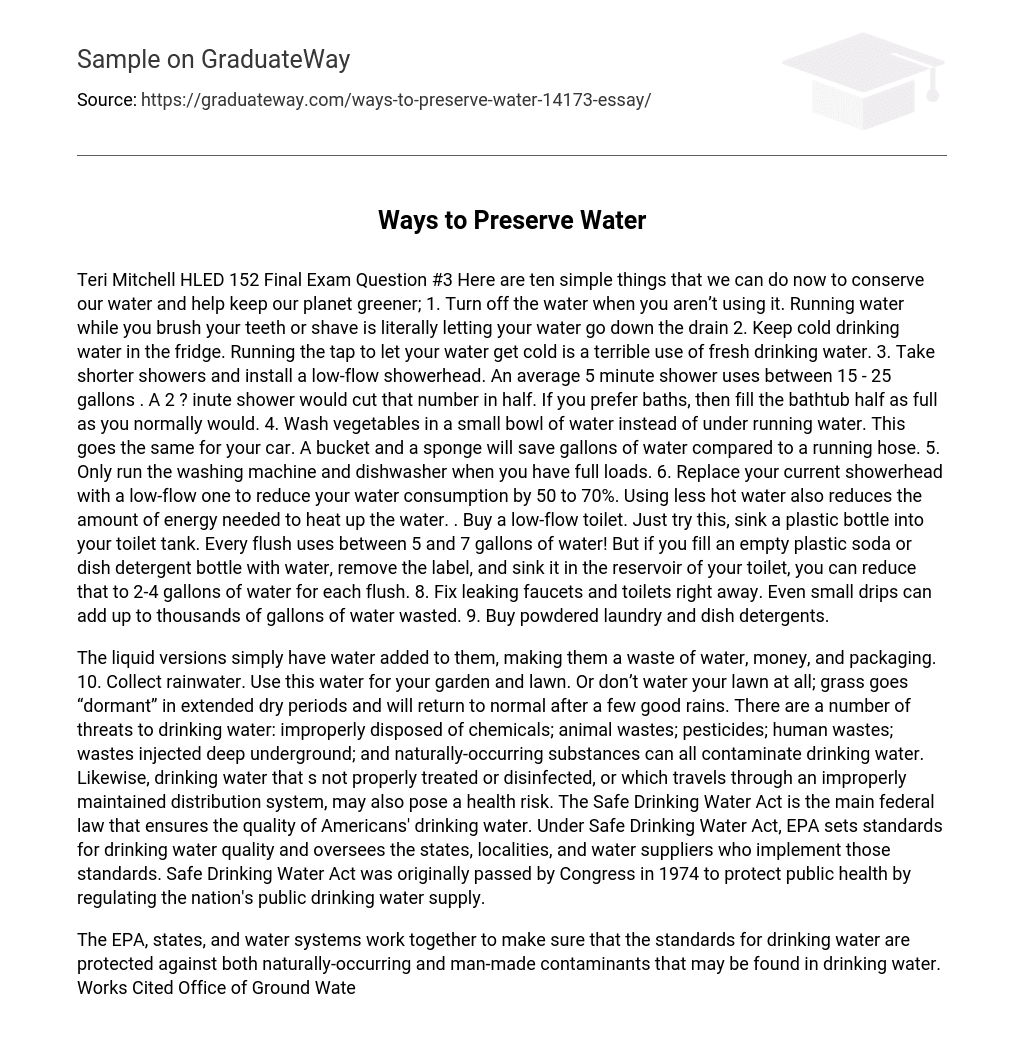Here are ten simple things that we can do now to conserve our water and help keep our planet greener;
- Turn off the water when you aren’t using it. Running water while you brush your teeth or shave is literally letting your water go down the drain.
- Keep cold drinking water in the fridge. Running the tap to let your water get cold is a terrible use of fresh drinking water.
- Take shorter showers and install a low-flow showerhead. An average 5 minute shower uses between 15 – 25 gallons inute shower would cut that number in half. If you prefer baths, then fill the bathtub half as full as you normally would.
- Wash vegetables in a small bowl of water instead of under running water. This goes the same for your car. A bucket and a sponge will save gallons of water compared to a running hose.
- Only run the washing machine and dishwasher when you have full loads.
- Replace your current showerhead with a low-flow one to reduce your water consumption by 50 to 70%. Using less hot water also reduces the amount of energy needed to heat up the water.
- Buy a low-flow toilet. Just try this, sink a plastic bottle into your toilet tank. Every flush uses between 5 and 7 gallons of water! But if you fill an empty plastic soda or dish detergent bottle with water, remove the label, and sink it in the reservoir of your toilet, you can reduce that to 2-4 gallons of water for each flush.
- Fix leaking faucets and toilets right away. Even small drips can add up to thousands of gallons of water wasted.
- Buy powdered laundry and dish detergents.
- The liquid versions simply have water added to them, making them a waste of water, money, and packaging.
Use this water for your garden and lawn. Or don’t water your lawn at all; grass goes “dormant” in extended dry periods and will return to normal after a few good rains. There are a number of threats to drinking water: improperly disposed of chemicals; animal wastes; pesticides; human wastes; wastes injected deep underground; and naturally-occurring substances can all contaminate drinking water. Likewise, drinking water that s not properly treated or disinfected, or which travels through an improperly maintained distribution system, may also pose a health risk.
The Safe Drinking Water Act is the main federal law that ensures the quality of Americans’ drinking water. Under Safe Drinking Water Act, EPA sets standards for drinking water quality and oversees the states, localities, and water suppliers who implement those standards. Safe Drinking Water Act was originally passed by Congress in 1974 to protect public health by regulating the nation’s public drinking water supply. The EPA, states, and water systems work together to make sure that the standards for drinking water are protected against both naturally-occurring and man-made contaminants that may be found in drinking water.
Works Cited
- Office of Ground Water & Drinking Water. (2010). Retrieved from US Environmental Protection Agency: http://www. epa. gov/ogwdw/sdwa/
- Downing, N. , McIntyre, G. , & Ramsey, D. (2009). Green Tip – 10 Things YOU Can Do To Save Water. Retrieved from MyBadPad: http://www. mybadpad. com/





